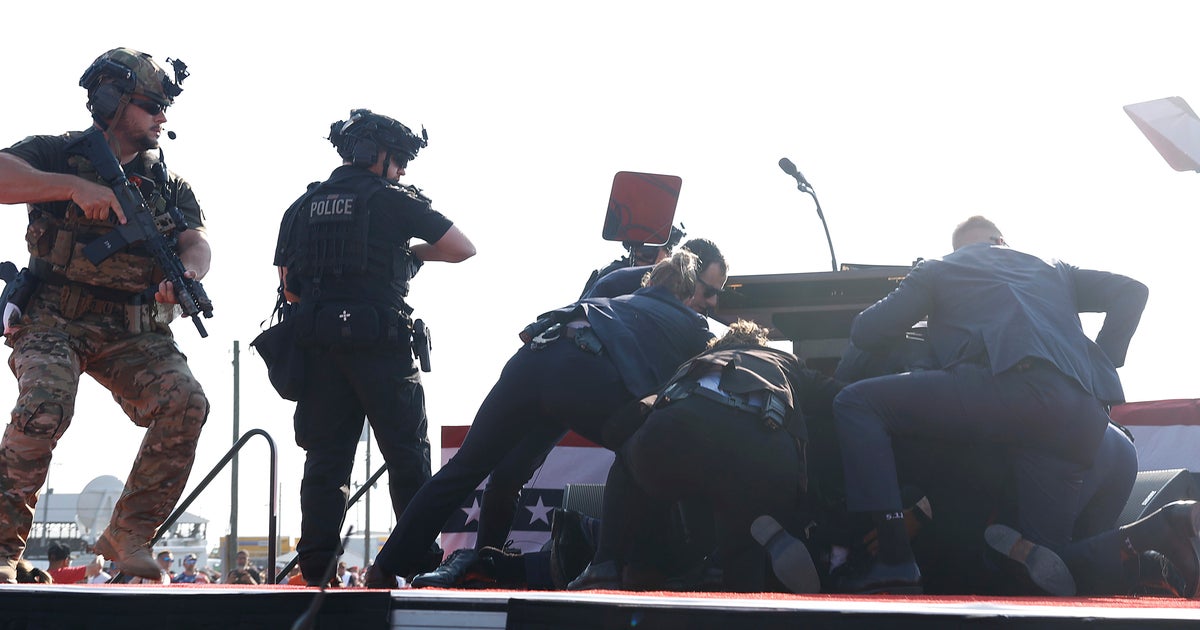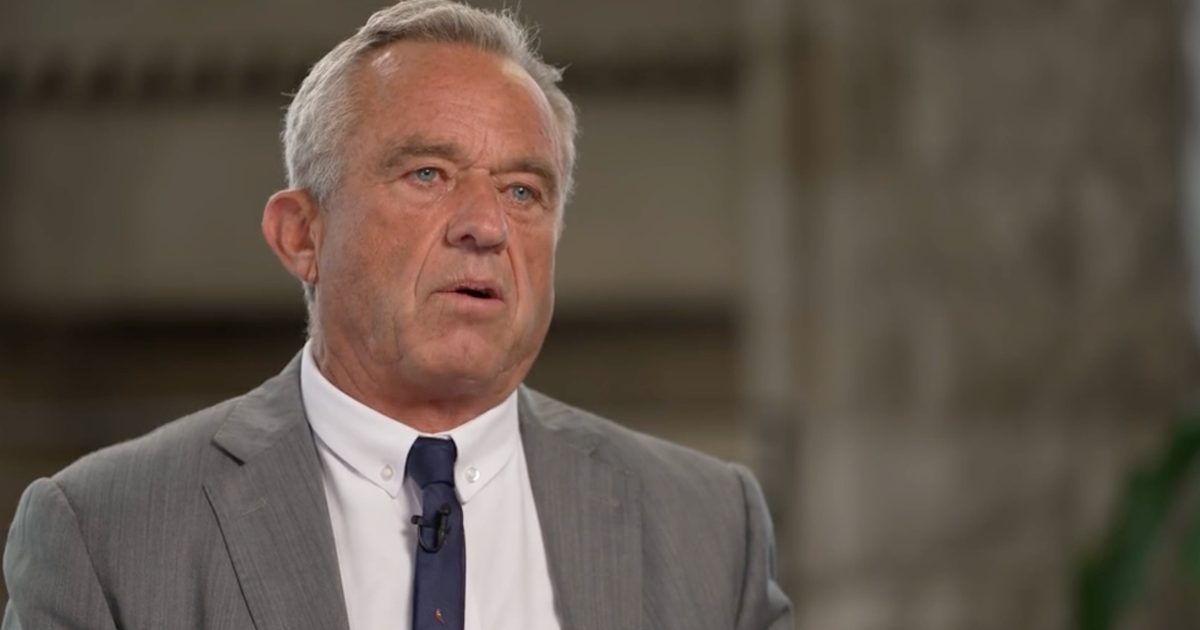Pence calls for accelerated U.S. support to Ukraine as potential 2024 GOP contenders divide on America's role in war
Former Vice President Mike Pence, who is considering a 2024 presidential run, laid out his foreign policy vision on Friday, calling on the U.S. and its allies to "accelerate the pace of military provisions" for Ukraine "until victory is achieved."
"While some in my party have taken a somewhat different view, let me be clear: there can be no room in the leadership of the Republican Party for apologists for Putin. There can only be room for champions of freedom," Pence said. "The fastest path to peace is to help Ukraine win the war."
Pence's speech, exactly a year after Russia's invasion of Ukraine, comes as Republicans who are considering a run for the White House are splintering on what America's role in the war should be.
The war in Ukraine and the Biden administration's response to the Chinese spy balloon that traversed the country before it was shot down by the military in early February have thrust foreign policy into the foreground for potential presidential candidates. That focus is also beginning to reveal differences among the growing field of contenders.
Former South Carolina Governor and United Nations Ambassador Nikki Haley became the second major Republican to declare her candidacy this month. She focused on war in the Ukraine, America's relationship with China, and the messy aftermath of the U.S withdrawal from Afghanistan during her first campaign stops in the early primary states of Iowa and New Hampshire.
Haley has said the war is about more than Ukraine. "This is a war about freedom. And it is a war we have to win," Haley said recently at a town hall in Urbandale, Iowa. "If we lose this fight for freedom, Russia has said Poland and the Baltics are next and then we've got a world war."
Pence also warned on Friday that withholding or reducing support for Ukraine could have the unintended consequence of bringing the war closer to home and American soldiers into the fight "if we surrender to the siren song of those in this country who argue that America has no interest" in defending Ukraine's freedom.
His stance differs from that of former President Donald Trump, the first major declared candidate in the 2024 race. Trump has criticized the infusion of cash into Ukraine and quipped during a visit to East Palestine, Ohio, this week that he hopes President Joe Biden has "got some money left over" after he returns from his trip to Ukraine.
The former president has also criticized Haley and noted that she had said last March the invasion "never would have happened" under a Trump presidency. "Instead of finding a peaceful solution to the Ukraine-Russia War, Haley has supported sending more American fighter planes to fuel the war," Trump's campaign wrote in a press release minutes after Haley launched her campaign earlier this month.
Trump has also often claimed Russian President Vladimir Putin wouldn't have invaded Ukraine if he were still president. And Trump's secretary of state, Mike Pompeo agrees. However, Pompeo said he differs with Trump on the Ukraine war.
"It is going to take America actually providing [Ukraine] the things that they need," Pompeo said this month while speaking at the Reagan Presidential Library. "I know inside my party there are many who think we shouldn't do that, it is somewhat controversial."
Pompeo, who arguably has the most direct foreign policy experience among the other Republicans known to be mulling a run for the presidency, has generally called on the U.S to back Ukraine at all costs. He's warned that if the U.S. does not continue to provide money and weapons to Ukraine, "it won't be long" before Putin is "pushing on NATO borders and we're right back thinking about a harder, more complicated problem very quickly."
The war in Ukraine and the House GOP investigation into the Biden administration's withdrawal from Afghanistan has made foreign policy a bigger part of the conversation compared to some previous Republican primary campaign cycles, says longtime Republican political consultant David Kochel.
Kochel, who ran Mitt Romney's Iowa campaign in 2008 and 2012, said the focus on foreign policy early in the cycle is a "good thing" because there's a lot at stake "with China, with Russia and their adventurism and whether the NATO alliance holds strong."
He said that could be an opportunity for candidates to "draw distinctions between one another." Those distinctions are already starting to take shape.
Florida Governor Ron DeSantis, who's polling as a top-two choice among potential 2024 Republican voters even though he has not officially entered the race, brushes off the concerns Haley, Pompeo, and Pence have about Russia.
DeSantis contends that the U.S. cannot provide Ukraine "an open-ended blank check." He said it's important to point out "fear of Russia going into NATO countries," but was dismissive about Russia's capacity to expand into other European countries.
"I think they've shown themselves to be a third rate military power; they've suffered tremendous, tremendous losses," DeSantis said in a Fox News interview on Monday. "I don't think they're the same threat to our country, even though they're hostile, I don't think they're on the same level as China."
After DeSantis' comments about the Russia-Ukraine conflict during Monday's Fox interview, Pence's team reached out to the University of Texas to arrange Friday's foreign policy speech.
Pence said "it would be foolish to think that Putin's tanks will stop at Ukraine's western border," adding that, "in that moment, America will have no choice but to send our own," an implicit acknowledgment that if the war were to expand into NATO countries, the U.S. would fulfill its obligation to defend the alliance.
Pence said despite high inflation and challenges at the southern border, the U.S. "cannot allow failures at home to undermine our will to be the leader of the free world."
Craig Robinson, a longtime GOP consultant in Iowa who was political director for the state party in 2008, said while foreign policy won't necessarily be central to voters' concerns, candidates will hear a "loud dose" from Iowa voters who do not favor a "blank check" approach to Ukraine.
"People aren't going to turn out to vote in the caucus because of it, but I would say 70% of Republicans in the state would say, 'Enough's enough.'"
Chuck Warren, a national Republican strategist, suggested foreign policy would play a big role in the primaries, "more than people think," because of the war in Ukraine and the House Republican investigation of the Biden administration's withdrawal from Afghanistan.
Warren said GOP candidates need to articulate to base voters that the U.S. can support Ukraine's fight against Russia while also taking care of domestic issues.
"That is the message that will resonate with the party faithful," Warren said. "We cannot let Russia just violently take over another country but we also need to focus similar resources on our border. And that is the Republican path that wins."




